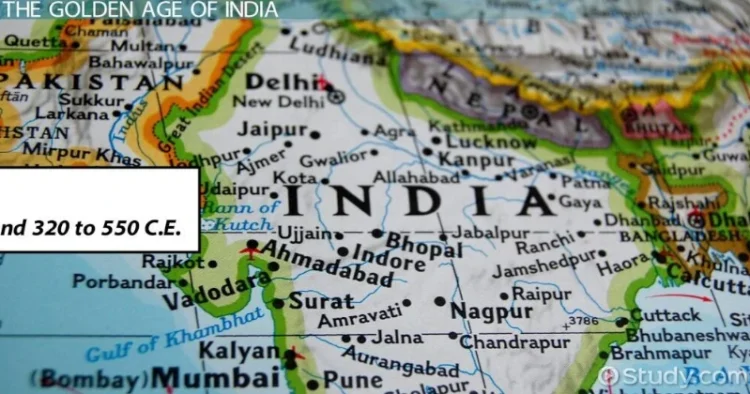The leading English daily of India—The Times of India carried an article on August 6, 2023 titled ‘India’s golden period is now, not in some distant past.’ The article delves on the economic history of India — from 1AD till the present time, using primarily the modern economic term—GDP. Solely using GDP and the population as the parameters of economic prosperity, it arrives at a broad conclusion based on the computed per capita GDP that India is richer today than it was in the distant past, as conveyed by the article’s title.
The www.investopedia.com provides the following definition of GDP.
Gross domestic product (GDP) is the total monetary or market value of all the finished goods and services produced within a country’s borders in a specific time period. As a broad measure of overall domestic production, it functions as a comprehensive scorecard of a given country’s economic health.
Viewed deeply and closely, the above definition of GDP as the professed measure of a country’s economic health or status appears far from practical, logical and realistic. Let us see, why.
Economic health of any entity is determined by its net worth in fundamental terms. A country’s economic status is also determined by its net worth which connotes the gross amount of wealth in its possession, and this, in the long tradition of the world economic history, means the amounts of precious metals like gold and silver possessing the status of exchange value or money and other valuable resources— minerals, herbs, food-grains, fruits, vegetable and animal products at a given point in time. To this we can also add valuable services as a component of economic health. Seen in this perspective, India has historically held a pre-eminent position of the richest country of the world till the arrival of the British in 18th century who economically emasculated the country.
Today, GDP is measured in terms of the gross value of goods and services produced. But the parameter of that measured value is not clearly defined. The valuation is based on the exchange values of printable and worthless paper currencies and these values are subject to market manipulation. And when we observe that a certain paper currency is the international exchange medium, the hollowness of GDP or per capita GDP as a measure of economic health becomes more pronounced.
India was rich because of its finest resources that fetched maximum value or premium in the global market. This richness was based on knowledge, superior skills, and technologies and of course raw produce of superior quality. The latter is because of the intrinsically superior soil and agro climatic conditions of India which give it a naturally endowed advantage over other countries. And this fact is borne out by the finest quality rice, wheat, barley, millets, fruits and vegetables produced in India even today. The fragrant Basmati rice and the exquisite quality Sharbati wheat of MP are unmatched in quality even today. India continues to be the home to widest variety of useful and valuable medicinal herbs. Indian native cow breeds yield A2 milk which is the best quality of milk in terms of nutritive value. Indian species of flora and fauna stand apart from the rest in attributes valuable for humans. Indian artisans’, crafts men’s and other workers’ skilled services commanded the greatest premium in global market. And even today, Indian physicians, surgeons, engineers, IT professionals and corporate executives are outshining others. Almost all US transnational IT Sector corporates are headed by Indians.
The aforesaid items constituted India’s wealth in the days of the yore and constitute even today. The way GDP is calculated to determine the economic health of a nation is rather gross and unscientific because it considers many goods and services which are of limited or even net negative value because of their environmental unfriendliness. The Western model of economics is intrinsically faulty because it is reductionist and not holistic. Principles of Kautillya’s Arthshastra need to be applied to compute the real economic health of a country.
The above suggests and points at India’s potential but it cannot be denied that India is living far below its true potential. This is because of the rotten, archaic British time rules and regulations still operating in the country. These cry for immediate change. When these are changed with the resultant systemic changes, Indians will become far more productive and grow far richer in a remarkably short time. In the distant past, these systems were aligned with Sanatan knowledge base and India was the undisputed economic, technological and political superpower.
India was, is and will remain a gifted country that has fed and enriched the globe in the past and will continue to do so in the future, as ordained by nature or providence. Our knowledge base, systems and living paradigms need to be realigned with the eternal, universal knowledge base of Sanatan literature which contains the true and complete principles of various subjects including science and economics.




















Comments